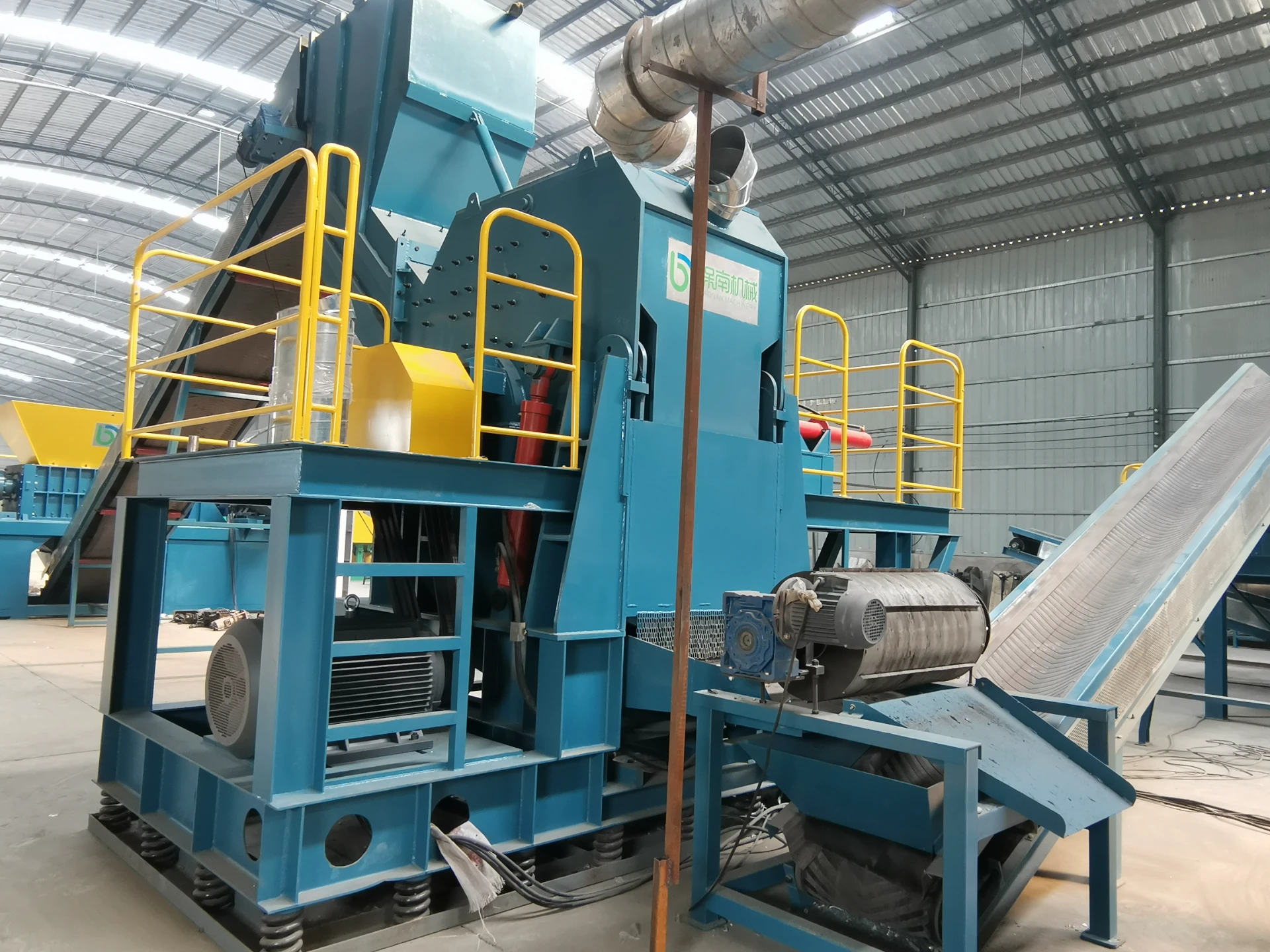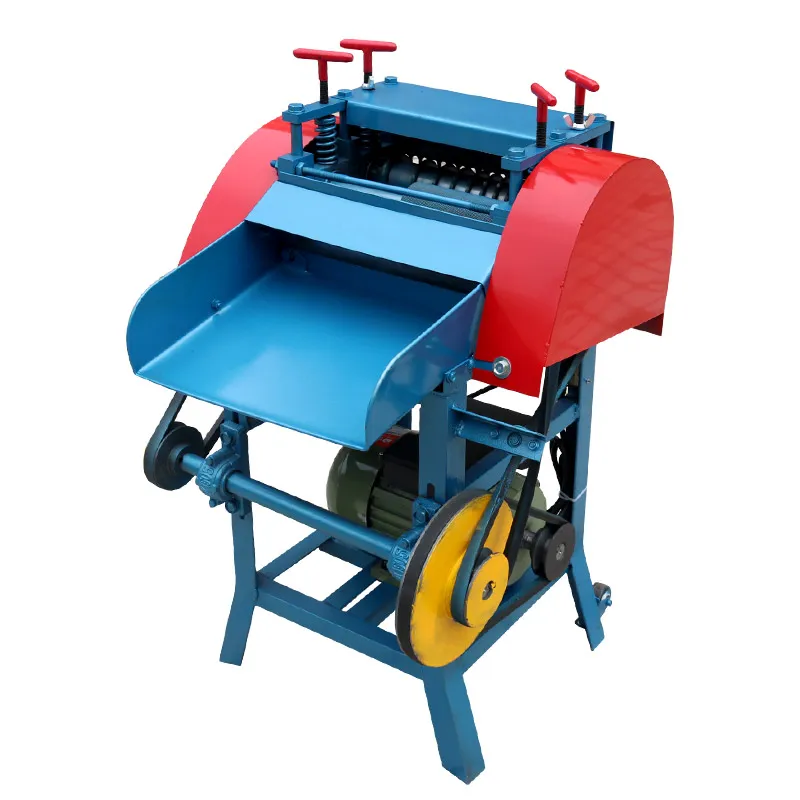

जुलाई . 06, 2025 06:53 Back to list

(industrial garden waste shredder)
In the rapidly evolving industrial landscape, efficient waste management has become a critical factor for operational sustainability. The growing emphasis on eco-friendly disposal and recycling initiatives has accelerated the global demand for industrial garden waste shredder
s. These advanced machines play a pivotal role in reducing the volume of green waste produced by factories, municipalities, and large-scale horticulture operations. Industry research reveals that over 426 million tons of green waste are generated annually worldwide, of which nearly 70% remains underutilized due to inadequate processing infrastructures. Investing in the right industrial garden waste shredder directly addresses regulatory demands, reduces environmental threats, and boosts recycling rates. Enterprises adopting these machines benefit from streamlined waste handling, minimized landfill contributions, and cost savings in waste logistics.
Recent advancements in industrial waste shredder machine design have greatly enhanced operational efficiency and safety. Many contemporary models incorporate intelligent control systems capable of auto-reverse functions to prevent jamming and hydrocarbons emission sensors that ensure compliance with environmental standards. For instance, variable speed drives and smart power management systems reduce energy consumption by up to 35% compared to traditional shredders. Blade technologies have evolved with the integration of wear-resistant alloys, extending maintenance intervals by 22%-40% and minimizing downtime. The implementation of noise suppression chambers also drops operational sound levels below 80 dB, improving workplace safety. Onboard diagnostic software can predict component wear, allowing for planned maintenance and the avoidance of costly breakdowns.
The industrial waste shredder sector features a dynamic array of manufacturers vying for innovation and reliability. Prominent industry leaders like SSI Shredding Systems, UNTHA, and Lindner have captured significant market share through proven performance and robust after-sales support. Market reports indicate the sector will experience a CAGR of 6.4% through 2030 as industries increasingly adopt advanced shredding solutions driven by rising landfill costs and stricter waste disposal regulations. While established brands leverage their global footprint and R&D investments, emerging players are introducing niche solutions tailored to specialty green waste streams. The decision matrix for organizations now extends beyond capacity and throughput, encompassing energy efficiency, automation features, and modular design that eases future upgrades. In this competitive environment, vendor selection is heavily informed by performance benchmarks, warranty terms, and customization capabilities.
Companies seeking the optimum balance between performance, cost, and longevity should consider an objective, data-driven approach. The following table compares prominent industrial waste shredder machines across critical specifications:
| Manufacturer | Model | Processing Capacity (tons/hr) | Blade Material | Energy Consumption (kWh/ton) | Noise Level (dB) | Warranty (Years) | Custom Options |
|---|---|---|---|---|---|---|---|
| SSI Shredding Systems | Dual-Shear™ MS3000 | 25 | D2 Tool Steel | 34 | 77 | 3 | Yes |
| UNTHA | XR2000 | 20 | Carbide Coated | 28 | 81 | 2 | Yes |
| Lindner | URRACO 95 | 18 | Alloy Steel | 30 | 74 | 3 | Yes |
| Vecoplan | V-Eco 1700 | 15 | Hardened Steel | 31 | 79 | 2 | Optional |
As depicted, each model offers a unique blend of strength, efficiency, and adaptability. Businesses can match machine attributes to their specific process needs, with high-capacity blades, energy-efficient motors, and noise-reduction engineering as differentiators.
The diversity of industrial green waste requires shredders that go beyond one-size-fits-all approaches. Customization is increasingly fundamental, with manufacturers offering modular units, variable speed controls, programmable logic controllers, and tailored in-feed hoppers. For operations dealing with high-moisture garden waste, custom drainage and anti-clog systems are integrated to maintain continuous operation. Many providers facilitate remote monitoring and real-time performance data analysis for decentralized operations, optimizing productivity and reducing operator presence. Clients in the paper and pulp sectors often require shredders with pre-processing sorting conveyors and ferrous metal separators, while landscape contractors may prioritize mobility and compact designs. Consulting with manufacturers during the design phase enables fine-tuning of throughput, particle size, and material compatibility—ensuring a solution aligned to each facility’s distinct operational demands.
Several successful installations illustrate the transformative effect of robust industrial waste shredder machines. At a municipal composting facility in the UK, implementation of an SSI Dual-Shear™ system increased output by 41% and reduced labor costs by 28% within six months. A large European paper mill integrated a Lindner URRACO 95, targeting woody garden waste. As a result, they achieved 98% material recovery—twice the previous rate. In Southeast Asia, a horticultural export company utilized a customized UNTHA XR2000, equipped with moisture extraction and inverse rotor technology, which delivered uninterrupted processing for 20,000 consecutive hours without a major breakdown. These examples highlight the adaptability of industrial waste shredder solutions across geographies and waste streams, delivering measurable environmental and financial returns.
Elevating waste management strategies through the adoption of an industrial garden waste shredder enables organizations to meet rising sustainability targets and regulatory mandates. Modern industrial waste shredder machine solutions not only mitigate landfill dependency, but also create new revenue pathways via recycled materials. As technology continues to advance, the future belongs to operators embracing integration, customization, and data-driven performance monitoring. By thoroughly comparing vendors, defining precise specifications, and learning from proven case studies, stakeholders are best positioned to maximize value from industrial waste shredder investments, future-proofing their operations in a circular economy paradigm.

(industrial garden waste shredder)
A: An industrial garden waste shredder is a heavy-duty machine designed to process large volumes of garden and green waste. It efficiently reduces branches, leaves, and other organic matter into smaller, manageable pieces. This equipment is commonly used in landscaping, municipal waste management, and agriculture.
A: Industrial waste shredder machines can handle a wide range of materials, including plastics, metals, paper, and garden waste. They are versatile for various industries needing bulk waste management. Always check the manufacturer's specifications for material compatibility.
A: Industrial waste shredders help by significantly reducing the volume of waste materials. This makes storage, transportation, and recycling more efficient. They're essential for organizations aiming to streamline their waste processes.
A: Consider factors such as throughput capacity, type of waste to be shredded, and shredder maintenance requirements. Also, evaluate energy consumption and safety features. It's important to match the machine to your specific waste processing needs.
A: Most industrial garden waste shredders are designed for easy maintenance with accessible components. Regular inspection and cleaning are recommended to ensure longevity and efficiency. Always follow the manufacturer's maintenance guidelines.
Latest news
Troubleshooting Common Eddy Separator Problems
NewsJul.04,2025
The Role of Metal Recycling Plants in Circular Economy
NewsJul.04,2025
The Impact of Recycling Line Pickers on Waste Management Costs
NewsJul.04,2025
Safety Features Every Metal Shredder Should Have
NewsJul.04,2025
How Industrial Shredders Improve Waste Management Systems
NewsJul.04,2025
How Cable Granulators Contribute to Sustainable Recycling
NewsJul.04,2025